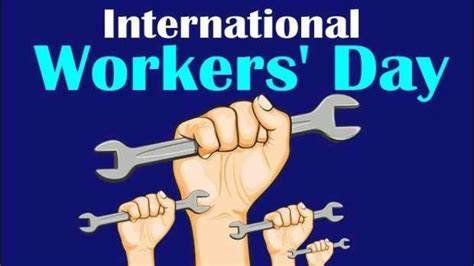Workers’ Day: Celebrating the Backbone of Our Society

Today, Nigeria joins more than 80 nations globally in commemorating Workers’ Day. Workers day also known as May Day or Labour Day, is celebrated annually on May 1 to honor workers who are pivotal to sustaining economies and nations through their contributions, selflessness, and tenacity. Its roots date back to 1886 labor demonstrations in Chicago, USA, which advocated for an eight-hour workday.
Despite leading to conflict, the demonstrations led to a global demand for improved working conditions. By 1890, European labor unions and socialist parties had proclaimed May 1st to be a day of international worker solidarity. It has since developed into a widely acknowledged celebration of the labor force.
The Origins of Workers’ Day in Nigeria
In Kano state, the People’s Redemption Party (PRP) officially recognized May 1 as a Nigerian public holiday in 1980. It was declared a national holiday nationwide just a year later, in 1981. In all states, the Nigeria Labour Congress (NLC) is leading demonstrations, speeches, and nonviolent processions to commemorate Workers’ Day today.
Are Nigerian Workers Happy Forty-Four Years?
The theme of this year’s Workers’ Day, “Reclaiming the Civic Space Amid Economic Hardship,” reflects the resiliency and increasing dissatisfaction of Nigerian workers. Many of them suffer from low pay, underpaid wages, and rising inflation despite their hard work. Despite being a federal law, some states do not yet enforce the minimum wage.
Many Nigerian workers are juggling multiple jobs to make ends meet as a result of this economic imbalance. The financial strain has been made worse by the recent removal of fuel subsidy, which has made the cost of transportation skyrocket, as well as living expenses.
This year’s May Day is characterized by disappointment rather than celebration. Nigerian workers are demanding more than just recognition; they are demanding change in response to the rising cost of living and the failure to establish a reasonable minimum wage.
The failure of various state governments to completely implement the new minimum wage and the ensuing salary adjustments has also been denounced by the Nigeria Labour Congress (NLC).
A motivated workforce is vital to the development of the country, and improved salaries and working conditions are critical to productivity. Labor leaders continue to call on the government to put workers’ welfare first by enacting the new minimum wage and tackling economic difficulties.
The Impact of Workers’ Day on Children
As the globe commemorates May Day today to honor workers’ rights and struggles, we must also remember those whose labor goes unnoticed: the children who labor in fields, factories, and workshops.
Children who are part of the workforce continue to be ignored on this day, and many of these children work more than ten hours a day, six days a week.
According to the International Labour Organisation (ILO), 160 million children are engaged in child labor. This includes 97 million boys and 63 million girls. Nearly half of all child workers, about 79 million children in total, are engaged in dangerous jobs that directly affect their moral development, safety, and health.
Africa has the highest number of children engaged in child labor, with about 92 million of them between the ages of 5 and 17.
Honoring Workers in Children’s Organizations and Parents on Workers’ Day
This Workers’ Day, we celebrate the dedication, sacrifice, and unwavering commitment of the workers in children’s organizations and parents who balance the demands of employment while raising their children.
These workers, including caregivers, teachers, social workers, counselors, etc who play a vital role in shaping the lives of children. Their efforts in raising God’s precious children are worth celebrating as they show up to ensure the well-being of children.
Also, the parents who work tirelessly to nurture and provide for the needs of their children. These working parents manage double shifts, one in the workplace and one at home, ensuring their children grow up with stability, care, and support.
Conclusion
As Nigeria observes Workers’ Day alongside the rest of the world, the government, business community, and labor unions should work together to address the urgent problems that Nigerian workers face. Better working conditions, job security, and fair pay will not only benefit employees but also advance the country as a whole.




